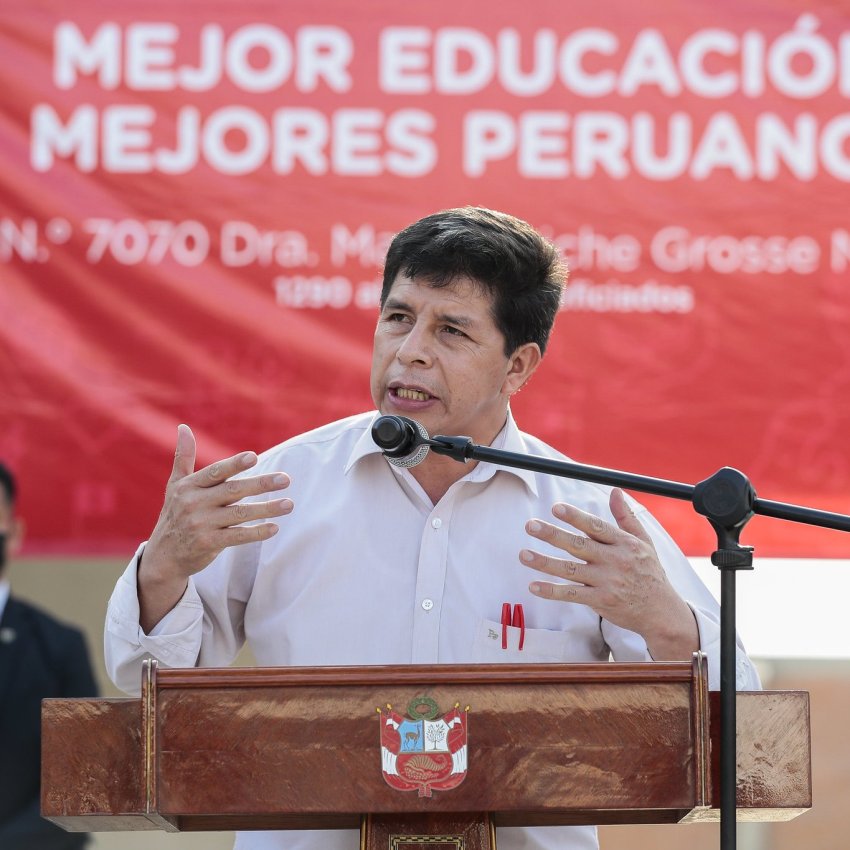
Since Peruvian president Pedro Castillo’s electoral victory in June last year, right-wing and anti-democratic forces have continued to campaign to destabilise the Peru Libre government and remove Castillo from office.
In the latest fallout from this campaign, Castillo appointed a new ministerial cabinet on February 8. This is the fourth cabinet appointed since Castillo was sworn in as president in July last year.
Targeted smear campaigns from right-wing corporate-owned media have forced the resignation of several government ministers, including Héctor Béjar (foreign affairs) and Guido Bellido (prime minister). Bellido’s replacement, Mirtha Vásquez, resigned as prime minister on January 31 following disputes within Castillo’s Peru Libre party.
Castillo appointed lawyer Aníbal Torres as the new prime minister, and replaced his justice, agriculture, health, women and environment ministers.
Castillo condemned the attempts to undermine his government on February 7, saying: “In this new media campaign that aims to promote the presidential vacancy, anti-democratic attitudes in some sectors, which only seek to destabilise the country and put governance at risk, are exposed.”
Castillo survived an attempted legislative coup in December, when representatives from right-wing parties Fuerza Popular, Renovación Popular and Avanza País presented a motion to Congress to initiate impeachment proceedings.
Proponents of the motion needed 52 votes from members of Congress, but were voted down 76 to 46, with 4 abstentions.
Castillo’s latest denouncement of the ongoing legislative coup attempts was borne out days later, when several right-wing members of Congress, including its president María del Carmen Alva, met in secret at a hotel in Lima on February 9 to discuss and formulate strategies to remove Castillo from office.
According to media reports, the meeting was sponsored by the Friedrich Naumann Foundation for Freedom, a German libertarian organisation with branches in Peru, Chile, Colombia, Ecuador, Bolivia and Venezuela. It describes itself as promoting “democratic, free and entrepreneurial societies” and regularly gives money to conservative and far-right groups in Peru.
At the meeting, opposition figures discussed changing Peru’s constitution to grant any member of Congress powers to launch “corruption” investigations into the president. With such changes, presidential powers would be suspended until the results of any investigation are finalised.
In this scenario, with the committee responsible for investigating accusations of corruption against Castillo controlled by right-wing congresspeople, it would most likely find against him, or at the least draw out an investigation to further limit his ability to govern.
The right wing is also seeking to change the constitution so that if it succeeds in impeaching Castillo, new presidential elections would be held, but not general elections. This would ensure the majority right-wing alliance could continue to control Congress.
Thousands marched in support of Castillo and against the impeachment attempt in December and renewed calls for a new Constitution.